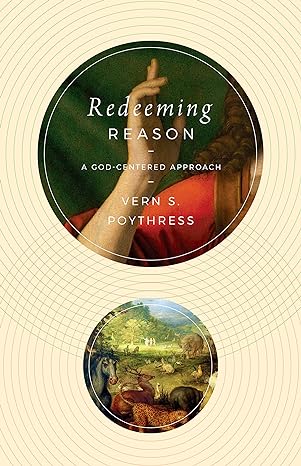A Brief Book Summary from Books At a Glance
by Steve West
About the Author
Vern Poythress (PhD, Harvard University; ThD, University of Stellenbosch) is distinguished professor of New Testament and biblical interpretation at Westminster Seminary, Philadelphia. He is the author of numerous books and articles.
Table of Contents
Introduction
1 Where to Start in Redeeming Reason
PART I: GOD AS THE SOURCE OF RATIONALITY
2 God’s Rationality
3 God’s Rationality Expressed
4 Implications of the Image of God
PART II: ANALOGY
5 The Nature of Analogy in Thought
6 Analogy as a Perspective on Classification
7 Analogy in the Three Fundamental Laws of Logic
PART III: KINDS OF ANALOGY
8 Analogy in Varied Contexts
9 Analogy in Varied Communication
10 Tight Analogy and Loose Analogy
PART IV: GUIDANCE FOR ANALOGY
11 Guidance in the Use of Analogy
12 Context in God
13 Perspectives on Ethics, Applied to Analogies
14 Judicial Deliberations
PART V: DERIVING PERSPECTIVES ON RATIONALITY
15 The Idea of a Perspective
16 Perspectives by Persons of the Trinity
17 Perspectives on Our Knowledge of God
18 Perspectives on Analogies in General
PART VI: SIMPLICITY AND THE DOCTRINE OF GOD
19 The Simplicity of God and Perspectives
20 Using Analogies in the Doctrine of God
21 Conclusion
APPENDIXES ON MODELING ANALOGIES
Appendix A: Modeling the Complexity of Analogy
Appendix B: Analysis Using Analogy
Summary
Chapter 1: Where to Start in Redeeming Reason
There are times when we can use our emotions to override sound, reasonable judgment, but there are also times when we can construct elaborate chains of rational justification for things that we intuitively know are wrong. As John Frame observes, human knowledge is not infallible in reason, emotion, or impressions of situations. We all need redemption, and this includes the redemption of our minds. The redemption of our minds involves knowing and communing with God, and analogy is one of the key elements of our redeemed reasoning. Our knowledge is never identical to God’s, but it imitates it and, at best, reflects God’s standard.
Scripture teaches that as we come to know Christ better, we are more and more conformed into his image. This includes the renewal of our minds so that we can understand and approve the goodness and wisdom of God’s word and will. This renewal goes beyond our ability to fully comprehend or explain. Philosophers have often sought to reason autonomously, but a Christian epistemology starts with God and God’s revelation. All reasoning takes place in a particular context, with presuppositions and background knowledge, and Christians need to work to be reasoning from and through Scripture. . . .
[To continue reading this summary, please see below....]The remainder of this article is premium content. Become a member to continue reading.
Already have an account? Sign In
